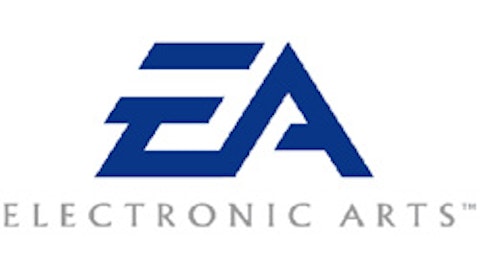If King goes public, it will face extremely unfavorable comparisons to Zynga, as well as questions regarding its ability to remain competitive against EA. Although King is basking in its 15 minutes of fame with Candy Crush, the game’s popularity will inevitably wane over time. Investors should remember how once-popular Facebook titles such as EA’s Restaurant City and The Sims Social slowly faded away until they were discontinued. Both games hit the top of the charts for a few months but were quickly abandoned after gamers moved on to other games.
However, this lack of originality isn’t unique to Zynga Inc (NASDAQ:ZNGA) or King. Finnish company Supercell made a name for itself with two formulaic games, the medieval strategy game Clash of Clans and a farming game, Hay Day. Supercell claims that these two games are generating $500,000 in daily revenue and that the company is currently profitable. Meanwhile, Rovio Entertainment has milked its flagship Angry Birds franchise for as long as possible, generating over half of its $200 million in revenue last year from sales and licensing of its associated merchandise.
Lack of a defensive moat
The problem with game makers like King and Zynga is the complete lack of a defensive moat against larger competitors. Electronic Arts was able to shift very quickly from social to mobile gaming, by shutting down four of its core Facebook titles to divert funds towards releasing 15 new mobile titles for fiscal 2014. Electronics Arts’ upcoming mobile games, which will includePlants vs Zombies 2, a Bejeweled sequel, and various EA sports titles, stand to make titles from King and Zynga look bland and outdated.
Electronic Arts also has a huge stable of mainstream video game properties to make mobile versions of, such as Mass Effect, Star Wars, Dragon Age and Battlefield, which could boost its presence in mobile gaming substantially. “Second screen technology” from Microsoft Corporation (NASDAQ:MSFT)’s XBox One and Sony Corporation (ADR) (NYSE:SNE)’s Playstation 4 could also alter the way gamers interact with mobile games. Many of these console based games, which are the territory of triple A publishers EA, Activision Blizzard, Inc. (NASDAQ:ATVI) and Ubisoft Entertainment SA (EPA:UBI), have mobile components, which could be played as standalone social games themselves to enhance the console experience.
The Foolish Bottom Line
I hate to be such a pessimist regarding King, given the public’s cute obsession with Candy Crush, but I believe that investors should avoid this company’s IPO. King faces the exact same problem as Zynga Inc (NASDAQ:ZNGA): fickle gamers with short attention spans.
Although a short-term solution is to churn out familiar games cloned from timeless formulas, King will have to continually pump out hits to keep generating revenue. However, that constant pressure to create new games to retain gamers’ interest will be a tough one that could easily lead to lower-quality, rushed titles.
In conclusion, there’s no real good investment out there in the world of social gaming. Even though Supercell currently enjoys such great success with only two titles, what happens when just one of those titles experiences a decline in active users? Rovio might have built up a strong brand presence with its omnipresent Angry Birds and Bad Piggies merchandise, but does this mean that the company can keep growing into the next decade?
Therefore, if a Candy Crush IPO comes your way, take your dentist’s advice. Avoid sugary stocks like this and your portfolio might be spared from some nasty cavities.
Leo Sun has no position in any stocks mentioned. The Motley Fool has no position in any of the stocks mentioned.
The article Will Candy Crush Cause Cavities in Your Portfolio? originally appeared on Fool.com.
Copyright © 1995 – 2013 The Motley Fool, LLC. All rights reserved. The Motley Fool has a disclosure policy.


